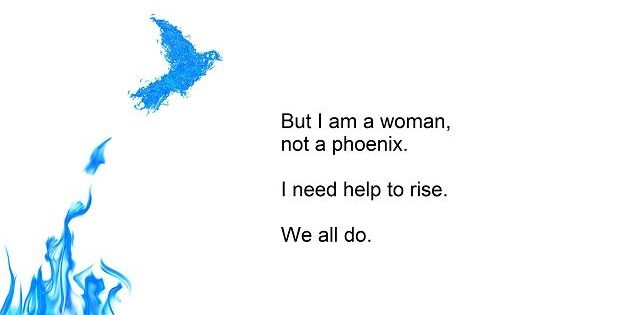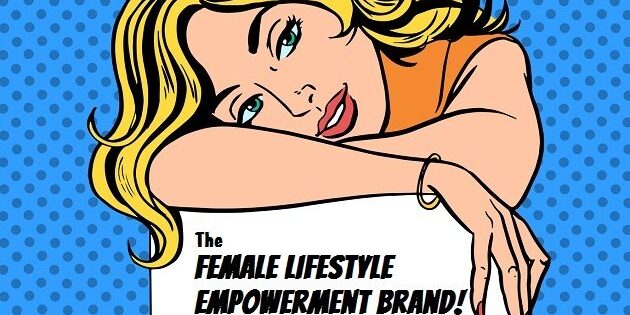“How Do I Price for Affordability?” and “How Do I Make My Prices More Accessible?” are The Wrong Questions

The only right answer to those questions is “lower your prices”, which can be a disaster for under-earning and start-up entrepreneurs — yet doesn’t necessarily create more economic justice. And economic justice is the point.
As a business development coach, I work with seriously principled people. They are specifically committed to building businesses with justice baked into their business practices — if they weren’t, they wouldn’t have hired me. Instead, they’d be working with coaches who don’t fret about pesky things like our impact on other people, politics and the planet.
And so when we work on pricing, they are ALWAYS asking me about how to be more accessible or worrying about creating a pricing structure that means their services are no longer affordable to some of the people they want to serve.
YES. Yes, let’s care. Yes, let’s leverage our resources — including our businesses — to contribute to financial justice. Yes, let’s take responsibility for our contribution toward economic justice (or injustice).
And NO. Affordability and accessibility are not necessarily the way we do that.
1. “How do I keep my services affordable?” and “How do I price so that I am accessible to more people?” are the wrong questions to ask.
Those two questions imply that there is only one answer: lower prices.
Asking questions that only offers one strategy erases all the gazillions of alternate economic strategies entrepreneurs could adopt. Now entrepreneurs are roped into using one strategy — and one that can create real, material harm to their own financial sustainability.
Do we usually call strategies that are known to be harmful “justice”?
2. Downloading Collective Financial Injustice to the Shoulders of Individual Providers
Many of my customers come to me because their business is NOT yet flourishing. That’s the problem they’re trying to solve. They’re working exceptionally long days or even 6 and 7 days a week to get by. Or they’re dipping into savings. Or they’re working two jobs AND running their business.
Often, when we dig into their business model, what we find out is that their prices are too low.
They’re pricing like they’re an employee, rather than like a business with overhead and taxes.
Or they’re pricing like a freelancer and pricing as though they can see clients 40 hours a week. Business owners need to spend half their working hours working on the business, not client-facing — which means their rates need to double. AT LEAST.
So…these caring, socially committed business owners are radically under-earning, themselves.
In the best-case scenario, they’re exhausted and suffering and running out of runway.
In the worst-case scenarios, it costs them evictions or houses that get foreclosed on. It costs them their health. It costs them marriages. It costs them relationships with their children. It puts them in deep doo-doo with the IRS (that’s the technical explanation). It costs them payments on merciless student loans that keep compounding. It creates disastrous levels of debt that takes decades to pay off. (Ask me about that one.)
Asking entrepreneurs who are not financially sustained, themselves, to further impoverish and jeopardize themselves in order to be affordable to more people does not create economic justice.
It contributes to more financial injustice. It perpetuates a pattern of extracting from individuals while leaving the wider system intact.
Yes, people in our communities need low-cost or free access to different services. AND it’s not righteous or just to download collective need onto the shoulders of an individual.
Free public services are funded by the public. Not an individual. If we want services to be free or very low-cost, then we need to band together as a tax-paying, voting collective and get it written into law.
Or organize as communities or interest groups to fund and provide those services as a collective.
It is not economic justice to expect service providers who are themselves unable to make ends meet to provide their services, uncompensated (or under-compensated).
AND, importantly, lowering prices is NOT the only way to contribute to economic justice.
Please note that phrase: contribute to economic justice. I’ve used it deliberately, several times in this email, instead of saying “create affordability” or “create accessibility” or “create economic justice.”
The truth is, no one of us can CREATE economic justice. It is a collective, systemic project.
We each can leverage what we have to contribute to economic justice.
But we can’t individually create it happen in one fell swoop. Tempering our expectations gets us more practical and creative — and impactful — with what we then decide to do.
FUN FACT:
You can’t “create” collective affordability or accessibility
with individual pricing.
Stop expecting it of yourself.
As soon as you charge $1 for something, you’ve priced it out of someone’s budget.
Instead, define your strategy or strategies for contributing to economic justice and practice those, instead. (I use several of these in my business not just one.)
REMEMBER: All of these strategies involve building their costs into your prices.
3. Alternate Ways – Beyond Lowering Prices — to contribute to Economic Justice
- For every 4 full-paying clients, take on a pro-bono client…because you marked up your base price 25%. That means the pro-bono client costs were covered by the paid-in-full clients. You contributed to economic justice without jeopardizing your own financial wellbeing
- Work 4 days a week, and volunteer your professional services 1 day a week with a group, organization, prison, school (Raise your prices 20% to cover off the one day a week you’re not working in your business)
- Offer free group classes once a month (or record them and put them out for free) so that your knowledge can be accessed at scale, but in a way that doesn’t exhaust you or cost you oodles of billable hours
- Create group programs instead of only working 1:1 so that you can offer free and low-cost spots without impacting your bottom line (I tie the # of scholarships to the number of paid spots so that I stay in balance, financially)
- Mentor up-and-comers from the groups you most want to serve
- Create free, downloadable DIY content so people benefit from your knowledge without consuming your limited time
- Create fundraisers for the groups you most want to support and invest in
- Become a spokesperson for an organization you care about
- Directly transfer cash every month to someone who you want to see rise (factor that into your prices!)
- Make donations from your profits (remember, you’ve actually got to make those profits)
- Run a launch or create a sales funnel that continually sells a pre-made resource, and donate the proceeds to an organization you care about
- Hold a fundraiser to raise a pool of money to pay for people who can’t afford the services
- Accept contributions from individuals who want to cover the costs of people who can’t access your services
- Pay your employees really, really well
- Offer scholarships in your group programs
- Instead of doing 1:1 work with people who can’t afford your services, fold them into a cohort and work with them as a group
- Seek grants and org/government funding
- Leverage your line items. If you’re going to buy something, strive to buy it from groups you most want to support. Eg if you entertain clients, make a rule that you try to eat at women- and minority-owned businesses. If you buy apps and software, buy it from teams that have people of colour in leadership positions. And so on and and so on.
- Pay a voluntary tax on your rent/mortgage and profits to indigenous nations
I repeat myself because it is critical: All of these strategies require that you build these expenses — including your time — into your prices.
And none of them require you to lower your prices or put your own financial sustainability at risk.
Fun Fact:
Raising Your Prices,
Rather than Lowering Them,
Is Often a More Effective Way to Contribute to Economic Justice
4. INCLUDE YOURSELF as a participant and beneficiary of economic justice, too.
In the question, “how do I price for affordability”, under-earning and start-up entrepreneurs are not including themselves as legitimate beneficiaries of economic justice.
Instead, that question makes them think of themselves as outside the equation and turn themselves into PROVIDERS of economic justice rather than also receivers of economic justice.
But economic justice is for everyone. That’s the point. It’s not justice if one group impoverishes and endangers themselves to aid others. (That’s actually where we already are, right now.) We ALL need to flourish. Your wellbeing needs to be part of the economic justice equation.
We each need to contribute to economic justice AND ALSO receive it. If we are only contributing but not also receiving, then it’s not economic justice.
5. RECAP: The Core Issue is ECONOMIC JUSTICE, not Affordability
When we try to solve for accessibility or affordability, there is only one answer: lower prices.
But lower prices impoverish providers and small businesses — which means it is NOT an individually sustainable strategy nor does it contribute to collective economic justice.
Instead, let’s ask ourselves: how can I use my business to contribute to economic justice?
And get creative with the hundreds of options that productively, sustainably answer that question.
If you’re here to use your life to create positive change, and build a business that makes money AND justice, you might enjoy my Sunday Love Letter. They’re meant to encourage you and build you up so you can get out of shame and into power. You can subscribe, here.
Want to make more money and justice this year? I lead a business mastermind for culture makers called Flora that can help you do exactly that. The next cohort starts January 2023. I invite you to learn more, here.



